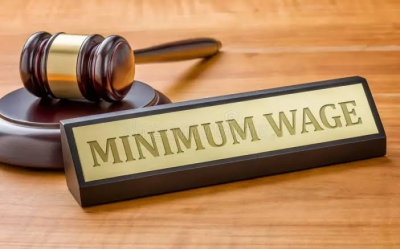The Federal Government has issued a stern warning to employers, both in the private and public sectors, emphasizing that paying workers less than the legally mandated ₦70,000 minimum wage is a criminal offense punishable under Nigerian law.
This declaration was made recently by the Permanent Secretary of the Ministry of Labour and Employment, Kachollom Daju, during the 13th Annual General Meeting of the Employers Association for Private Employment Agencies of Nigeria (EAPEAN), held in Ikeja, Lagos.
Minimum Wage as a Law
Represented by the Director of Employment and Wages, John Nyamali, Daju reiterated that the enforcement of the minimum wage is non-negotiable and urged all private employment agencies to ensure compliance.

“The minimum wage is now a law, and as a result, it is a punishable crime for any employer to pay less than ₦70,000 to any of its workers,” Daju said.
She further emphasized that agencies must include the minimum wage in all contracts with their principals, ensuring that every worker takes home no less than ₦70,000, even after deductions.
“The least paid worker in Nigeria should earn ₦70,000. Employers who fail to implement this law risk imprisonment,” she added, affirming the government’s commitment to upholding workers’ rights.
Clarification on the Wage
Dr. Olufemi Ogunlowo, President of EAPEAN, called for clarity regarding whether the ₦70,000 minimum wage applies as net or gross income. Ogunlowo stated that private employment agencies are committed to complying with the minimum wage mandate but urged the government and the Nigeria Labour Congress (NLC) to address ambiguities in the legislation.

“As a labor union in the private sector, we are committed to the implementation of the minimum wage. However, the government must clarify whether the ₦70,000 is net or gross to eliminate confusion,” he noted.
Contradiction in Legal Practice
While the Federal Government pushes for adherence to the minimum wage, concerns have been raised regarding certain sectors, particularly the legal profession.
Despite the mandatory wage law, reports suggest that some notable law firms pay their junior lawyers significantly less than ₦70,000.
Junior lawyers often complain of exploitative practices, including:
- Salaries far below the mandated minimum wage.
- Overwhelming workloads with little to no benefits.
- A lack of job security and opportunities for career advancement.
A junior lawyer who spoke anonymously lamented the situation:
“We work long hours, sometimes up to 15 hours a day, and yet, our salaries are not even up to the minimum wage. Some SANs and law firms claim they cannot afford to pay better, yet they live lavish lifestyles.”
The legal profession, which plays a critical role in upholding the rule of law, faces scrutiny for these practices, as critics argue that it undermines the credibility of advocates who are expected to champion fairness and justice.
Call for Nationwide Compliance
The Federal Government has vowed to take enforcement measures against erring employers across all sectors. Labor unions and civil society organizations have also intensified advocacy for the protection of workers’ rights.
As Nigeria grapples with economic challenges, the implementation of the ₦70,000 minimum wage is seen as a critical step toward improving the living conditions of workers and ensuring economic stability.
However, experts warn that compliance must be universal and inclusive, cutting across all professions, to truly uphold the spirit of the law.









